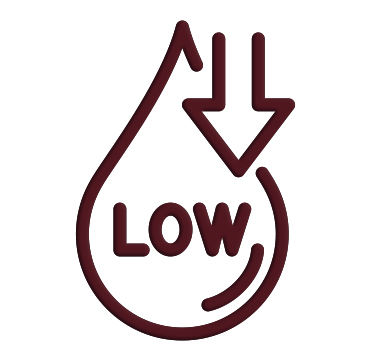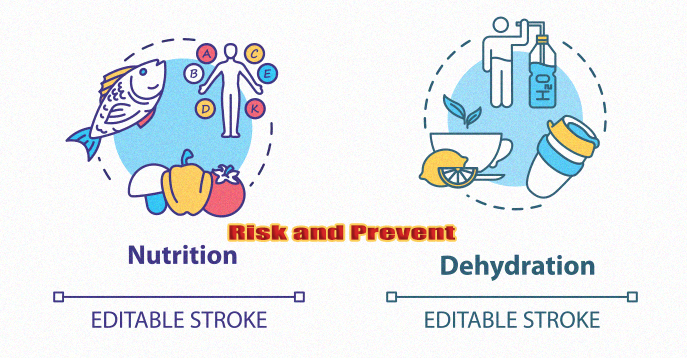
Intermittent fasting, also known as IF, has become a popular way to promote healthy eating habits and weight management. It is an effective way to control your appetite, shed pounds, and improve overall health. Here we will explain the many benefits of intermittent fasting and how to implement it quickly into your routine. With the right combination of self-control and nutrition planning, you can start seeing results with intermittent fasting in no time.
What is Intermittent Fasting?
Intermittent fasting has become a popular wellness trend in recent years, and for a good reason. Intermittent fasting is not only an effective way to lose weight, but it also has numerous health benefits. So, what is intermittent fasting, and how do you implement it?
Intermittent fasting is a type of diet plan that cycles between periods of eating and abstaining from food. It typically involves fasting for 16 hours each day or eating within an 8-hour window, such as 12 pm - 8 pm. This type of eating pattern allows your body to enter into a state called 'ketosis,' which helps to burn fat quicker than traditional diets. Intermittent fasting can also benefit overall health due to its ability to reduce inflammation, control blood sugar levels, improve digestion, and support the cardiovascular system.
Benefits: Weight Loss, Metabolism Boost
Intermittent fasting has become an increasingly popular dieting method due to its numerous benefits. Two of the most common uses include weight loss and improved metabolism. In addition, intermittent fasting is a flexible approach that fits easily into anyone's lifestyle.
Weight loss is one of the main reasons why many people choose to take on intermittent fasting. This dietary pattern helps reduce your overall calorie intake as you're only allowed to eat during a particular window of time each day, usually 8 hours or so, depending on the type of fast you choose. Furthermore, research has found that during this fasting period, your body burns fatter than when you are in a fed state.
A second benefit associated with intermittent fasting is increased metabolism.
Improved Health: Lower Blood Sugar, Lower Cholesterol

Intermittent fasting is gaining popularity as an effective way to improve health and lose weight. New evidence suggests that intermittent fasting can help lower blood sugar and cholesterol levels, potentially lowering the dangers of diabetes, heart disease, and stroke. Additionally, recent studies show that intermittent fasting can help reduce inflammation and even help with cognitive functioning.
The basics of intermittent fasting involve restricting when you eat rather than what you eat – for instance, having a window of 8 hours for eating within 24 hours instead of three meals per day. During this time frame, people are encouraged to consume nutritious foods high in fiber, such as fruits and vegetables, while avoiding processed foods. In addition, when not eating food during the other 16 hours each day, drinking plenty of water to stay hydrated is essential.
Tips on Implementation: Scheduling Meals, Eating Nutritious Foods
Eating nutritious foods and scheduling meals can be helpful ways to implement intermittent fasting into your routine. Intermittent fasting involves alternating between times of eating and times of fasting. While it may sound complicated, some easy tips make the process easier.
First, creating a schedule for when you will eat or fast each day is crucial. Such a schedule is critical because intermittent fasting relies on consistency. It would help if you also focused on ensuring that your meals are nutrient-dense, healthy, and energizing foods. Eating nutrient-dense items such as fruits, vegetables, whole grains, lean proteins, and healthy fats can maintain your energy levels throughout the day while helping maintain muscle mass during your fasts. Additionally, drinking plenty of water is essential for keeping yourself well-hydrated during fasting.
Risks and Precautions: Dehydration, Nutrient Deficiency

Intermittent fasting can be one of the best ways to maintain a healthy diet and lifestyle. It helps boost metabolism, reduce cravings, and even helps you lose weight. But first, it's essential to understand the risks and precautions associated with this dietary approach. Dehydration and nutrient deficiencies are two significant concerns you must address when implementing intermittent fasting into your routine.
Dehydration is a general side effect of intermittent fasting. If not managed properly, dehydration can lead to dizziness, headaches, confusion, fatigue, and even worse health issues if left untreated. Therefore, drinking plenty of fluids throughout the day, regardless of whether you eat or not, is essential as it helps replenish lost minerals due to dehydration.
Pros and Cons of Intermittent Fasting
Intermittent fasting has been attaining popularity in recent years as a dietary practice incorporating periods of fasting and eating. While this approach has numerous benefits, it is vital to be aware of the potential drawbacks. To completely understand the pros and cons of intermittent fasting, first, we must define what it is and how it works.
Intermittent fasting involves rotating between periods of eating and not eating. The concept is simple: reduce your daily caloric intake for specific days or weeks by lowering meals or skipping them altogether. This dieting can help you lose weight, improve blood sugar control, lower inflammation levels, increase longevity, enhance mental clarity, and even improve physical performance.
Conclusion
Intermittent fasting has become one of the most favored lifestyle changes in recent years. Studies have shown that intermittent fasting can benefit weight loss, improve mental clarity, and improve immune system function. The verdict is clear: Intermittent fasting can be a safe and effective way to improve your general health.
The critical component to success with intermittent fasting is establishing an achievable plan that works for your lifestyle. Start by choosing an approach – either time-restricted eating or whole-day fasts – then decide on the best times for you to fast and how often you'd like to break your fasts. Remember not to push yourself too hard; keep it manageable and maintain consistency for optimal results. Along the way, pay attention to how you feel after each session and increase or decrease accordingly as needed.





